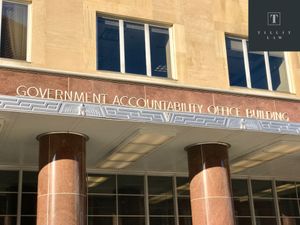Contractors often face situations requiring them to enter bilateral contract modifications towards the end of a contract to close it out. To avoid incurring excessive costs and liability in such situations, contractors should carefully consider whether the modifications increase the scope of the contract beyond what was initially agreed upon. Federal contractors should review the impact of any applicable Federal Acquisition Regulation (FAR) provisions in their contract on the modification at issue, as recovery under future requests for equitable adjustments and claims may depend on it.
The Armed Services Board of Contract Appeals (ASBCA), in one of its first decisions of 2024, reminded contractors to carefully assess the scope and governing authority before agreeing to bilateral contract modifications. In ASBCA No. 61819, the contractor brought unsuccessful claims of contract changes based on economic waste theory and differing site conditions against NASA. The contract involved construction work on an aircraft parking apron and taxiway at a NASA flight facility in Virginia. It included the Default (Fixed-Price Construction) clause from FAR § 52.249-10(a) and an Inspection of Construction clause from FAR § 52.246-12. The contract also contained Technical Direction and Special Instruction provisions that prohibited the Contracting Officer’s Representative (COR), Government inspectors, or any other Government employees from issuing technical directions that waived or changed any contract provisions without written authorization from the Contracting Officer (CO).
While the contract involved at least five modifications, two modifications were raised by the contractor as entitling it to additional compensation for work beyond the scope of the original contract. The first pertinent modification provided for changes to the contract scope to address a differing site condition. The ASBCA noted significant delays leading up to the modification, due to which NASA even considered terminating the contract. Due to this, the modification specifically released the Government from all liability attributable to the differing site condition. The contractor later alleged that it entered this modification under duress stemming from the threat of economic ruin it would have suffered had the contract been terminated. The ASBCA dismissed this argument, reminding the contractor that economic pressures and even threats of considerable financial loss do not constitute duress. The ASBCA also found that the contractor did not overcome the presumption of good faith afforded to NASA when it alleged that the Government breached its duty of good faith and fair dealing in negotiating and entering this modification.
For the other pertinent modification, both parties agreed that particular “punch list” items would be completed before contract closeout. The punch list refers to a document listing the final pending work items before the construction contract may be considered complete. The document stated that the contractor would perform the punch list work per the original contract requirements and as detailed in the contract specifications pursuant to the authority of the underlying contract. The contractor alleged that it was entitled to additional compensation for the punch list work as a change to the underlying contract under the economic waste doctrine. Under the doctrine, the Government may be liable for being economically wasteful in certain circumstances if it insists upon strict compliance where the completed work is already acceptable for its intended purpose. The ASBCA again found that the evidence produced by the contractor failed to prove that the punch list items were the type of corrective actions directed by the CO that are contemplated under the economic waste doctrine.
The ASBCA concluded that although the contractor did not relieve the Government of its responsibility for economic waste and contract change, still, the modification's terms clearly indicated that the contractor was obligated to complete the work on the punch list items as part of the original contract. The ASBCA noted that the modification expressly cited the underlying contract as the governing authority instead of a Changes clause such as the one contained in FAR § 52.243-4. The ASBCA saw this as strong evidence that the punch list work was agreed upon by both parties as being encompassed under the existing contract and not viewed as the Government unilaterally directing a contract change. In agreeing to the modification, the contractor promised to perform the punch list work as work under the contract pursuant to its underlying drawings and specifications.
Construction contractors performing on U.S. federal contracts are generally required to act in conformance with the Government’s directions or risk having their contracts terminated for default. However, contractors anticipating future requests for equitable adjustments or claims for changes due to factors outside their control should thoroughly review all modifications and original contract provisions to clarify the applicable authority. Additionally, any documents, communications, or materials, such as CO’s instructions relating to additional or corrective work, should be meticulously maintained as potential evidence to be used in settlement negotiations or claims litigation.
This Federal Contract Claims Insight is provided as a general summary of the applicable law in the practice area and does not constitute legal advice. Contractors wishing to learn more are encouraged to consult the TILLIT LAW PLLC Client Portal or Contact Us to determine how the law would apply in a specific situation.





